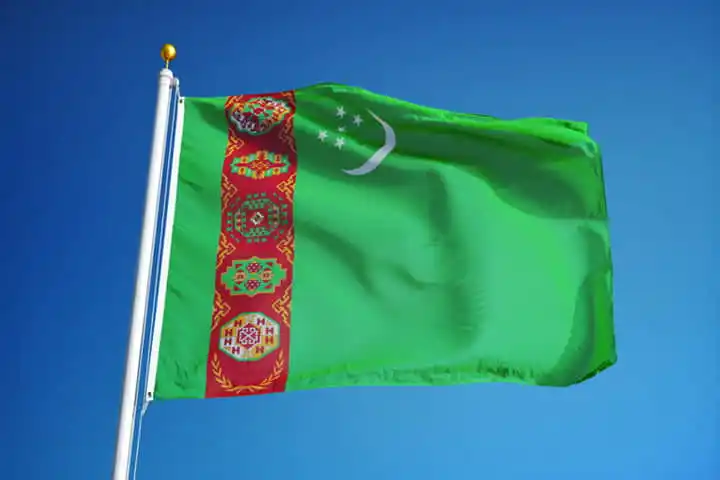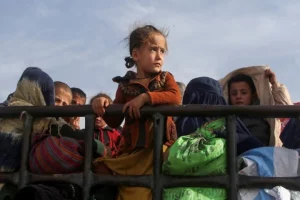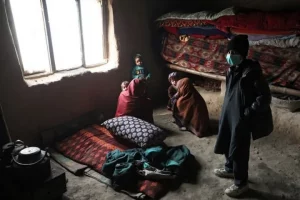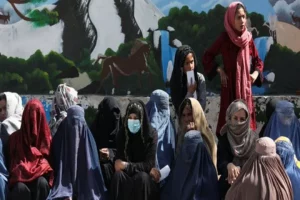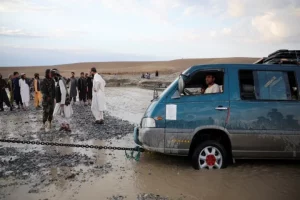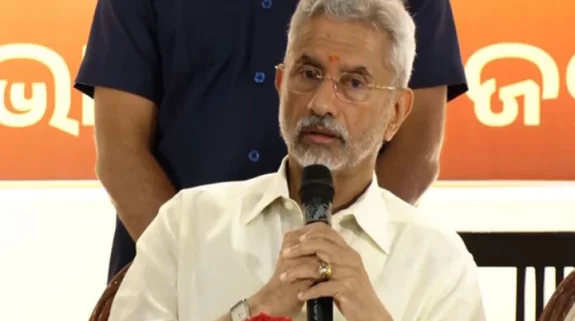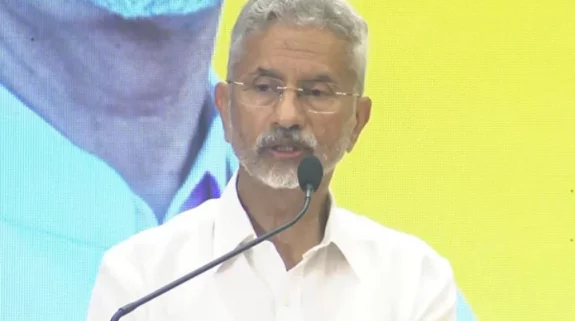The rapidly evolving situation in Afghanistan, with the Taliban taking over the country save for the Panjshir valley, has put the spotlight on Central Asia, particularly on Afghanistan's immediate neighbours. But while there has been news and reports on Tajikistan and Uzbekistan, little has been heard of how neighbouring Turkmenistan –a country with huge gas reserves–has been dealing with the Afghan crisis, in particular with the Taliban.
Turkmenistan shares a 744 km long border with Afghanistan. Sitting on reserves of 265 trillion cubic feet, it is the sixth largest natural gas reserve holder in the world.
This resource rich Central Asia country has its own, if interesting, take and approach to its Southern neighbour.
On September 1, it rushed humanitarian aid to Afghanistan, becoming one of the first countries to do so after the Taliban took over the country. While Qatar is working to open humanitarian corridors to Afghanistan, Turkmenistan has already been rushing aid to Afghanistan.
On August 30, Turkmen representatives, including from the Foreign Ministry met Taliban officials from Faryab province to discuss strengthening the work of the Imamnazar-Akina checkpoint between the two countries. The Turkmen state-affiliated agency reported that the meeting went on to underscore that.
Also Read: Taliban victory inflames Central Asian frontline, worries Russia
"The Afghan side was pleased with the friendly gesture of the Turkmen side to provide the necessary medical equipment."
Even earlier on August 18, just 4 days after the fall of Mazar-e- Sharif Turkmen consul there held a meeting with the Taliban representatives, which the foreign ministry described as "positive and constructive" .
It would, thus seem, as if Turkmenistan has rushed to embrace the Taliban. What explains this bonhomie?
To understand it one needs to look at the main drivers of Turkmenistan's foreign policy. Paramount is regime survival, which in turn is dependent on the gas rich but cash strapped economy. Turkmenistan has emerged as possibly the most isolated and remote of all the former Soviet republics shunning interaction with the outside world save for the bare minimum. To keep it that way it announced its policy of official and permanent neutrality in 1995 which was recognised by the UN. Neutrality is a basis of the country's domestic and foreign policy.
Permanent neutrality, thus, paved the way for Turkmenistan to engage officially with the Taliban, even as it enjoyed cordial relations with the former Afghan government. On the other hand, the Central Asian country's landlocked geography makes it dependent on neighbours for its economy – dependent entirely on its gas exports. Afghanistan's "Heart of Asia" location, as well as its own energy needs makes it a valuable country for Ashgabat.
That is why, perhaps, Turkmenistan has been one of the most pragmatic of the Central Asian countries. In stark contrast with neighbouring Tajikistan, for example, the gas rich country began engaging with the Taliban much before the fall of Kabul. In February 2021, Ashgabat officially hosted the first Taliban delegation headed by Mullah Abdul Ghani Baradar who is now said to be heading the government being formed in Kabul. In a statement following the visit, which underscored the importance of infrastructure projects by Turkmenistan in Afghanistan, Turkmen Foreign Ministry underscored the fact that for many years the country had been extending significant support to the Afghan people, aiding the Afghan economy, particularly in such strategically significant areas such as energy, transport, and communication.
The statement even described the delegation as an "Afghan delegation". The visit came soon after Pentagon had announced that the Taliban were not honouring their commitments under the Doha agreement.
As the situation inside Afghanistan became increasingly volatile, Ashgabat hosted a Taliban delegation for the second time. On July 10, even as the Taliban were announcing their control of 85 per cent of Afghan territory, another Taliban delegation again visited Turkmenistan, again on the invitation of Ashgabat. While Ashgabat kept the visit a secret, Taliban spokesman Suhail Shaheen did make a formal announcement about it. The main topic on the agenda was to control refugee flows from Afghanistan to Turkmenistan and to avoid any chaos from spilling over across the border.
Also Read: Why are Central Asian countries so spooked by the turmoil in Afghanistan?
But Turkmenistan also exports electricity to the Northern regions of Afghanistan, some of which like northern Herat and Baghdis had long been controlled by the Taliban. Turkmenistan also wishes to export electricity to Pakistan and gas to both Pakistan and India.
Hence, it needs to engage anyone in power to ensure the safety and security of its projects. The support of the Taliban, which had on occasions earlier disrupted power supplies from Turkmenistan, is therefore vital. Keeping energy and its economic survival as its prime focus, it is not surprising that Turkmenistan at one time was keen to host intra-Afghan negotiations.
On the other hand, Taliban is also known to have levied a tax on the use of electricity coming from Turkmenistan in the areas under its control. Now that it is in charge of the country and needs revenues to officially run it , it is expected that that Taliban will encourage its involvement in such-cross border projects with Turkmenistan—a country with which it has no political animosity.
No wonder, then, that in each official statement released following any engagement with the Taliban, the Turkmen side has not failed to include the aid and significance of energy and allied projects like the rail bridge from Turkmenistan to Afghanistan.
However, economics aside, there is another aspect to be factored in when discussing Turkmenistan's engagement with the Taliban. Like other Muslim majority Central Asian countries, Turkmenistan shuns political Islam and maintains a tight control over religion inside the country. Yet it is doing business as usual with a group defined by religious extremism because of the threat of the Islamic State. Members of Turkmen communities in Iraq and Syria have fought alongside the Islamic State and with the group routed there are believed to have come to Afghanistan to join the ISIS-KP there. For Turkmenistan, it is imperative to keep the ISIS away from it and like other countries in the region, from Russia to China, it is banking on the Taliban to negate the jihadi group there and ensure safety for the neighbouring countries. "All the countries are trying to cut bilateral deals with the Taliban," says an observer, despite the lack of trust in the extremist group. Considering that Turkmenistan has also been majorly shoring up its border defences, this is probably true of it as well.
(Aditi Bhaduri is a columnist specialising in Eurasian geopolitics. Views expressed are personal)






